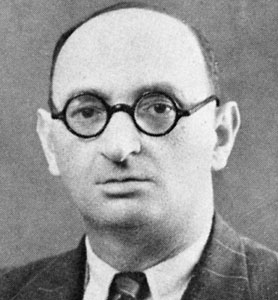Image Details

From Yesha‘yahu Hasheni: Nevu’ato, ’Ishiyuto Ushemo
Amateur Bible scholar Nehemiah Rabban, in a little-known book published in 1971, ventured that the key to Second Isaiah’s identity was to be found in the following passage: “Who is blind as meshullam or blind as the Lord’s servant?” (Isaiah 42:19). The Hebrew word meshullam has traditionally been read as a symbolic nickname (variously translated as “perfected,” “submissive,” “covenanted” or “repaid”), but Rabban proposed that it is actually the author’s name. Meshullam appears 23 other times in the Bible—and always as a proper name (not a nickname). One such Meshullam was a prominent man—the son of Zerubbabel, who was heir to the house of David and who served as governor of Jerusalem after the Exile (1 Chronicles 3:19). According to Propp, one of the biblical Meshullams—possibly Zerubbabel’s son—may well be the author of Isaiah chapters 40–66.
